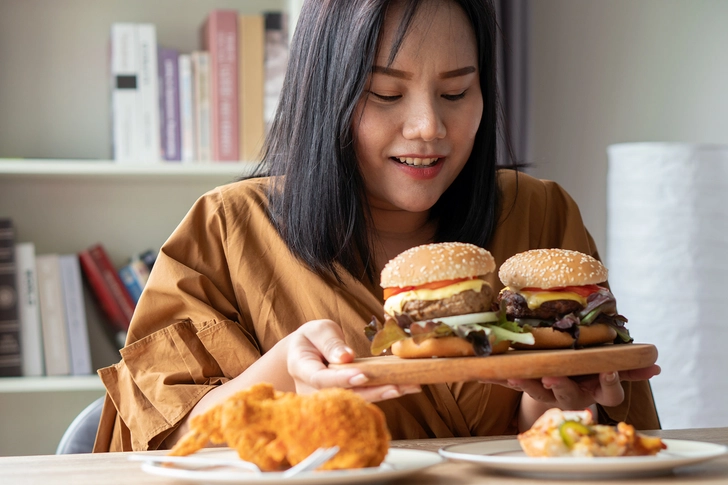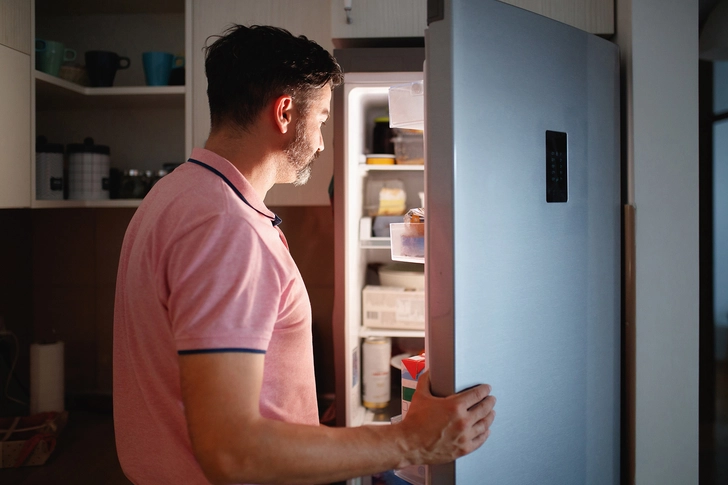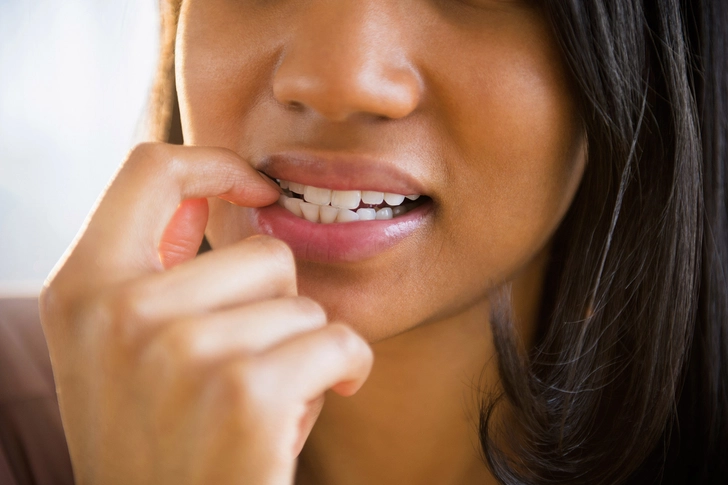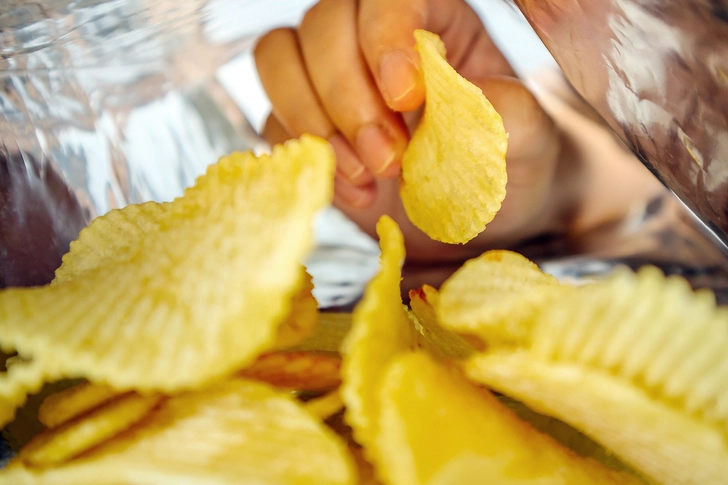Why Do You Eat When You’re Not Hungry?


Stress
Long-term stress floods your body with cortisol, a hormone that plays a part in your fight or flight system. In order to refuel your body after a stressful encounter, cortisol makes you want to eat more. If stress is a near-constant state for you, those cortisol levels stay up and keep you reaching for the snacks.

Binge Eating Disorder (BED)
Binge eating disorder (BED) is a category used in diagnosing eating disorders. It describes ongoing sessions of eating more food than might be considered usual. BED is linked with behaviors like continuing to eat when you’re no longer hungry, eating very quickly, and eating when you’re alone. Binge eating often spurs feelings of guilt or shame, yet it’s common across all demographics.

Fatigue
When you don’t get enough rest, your levels of ghrelin (a hormone that makes you want to eat) go up. Meanwhile, your levels of leptin (a hormone that decreases hunger and the desire to eat) go down. These two hormones control feelings of hunger. The result: You feel hungry even if your body doesn’t need food.

Loneliness and Boredom
You might find yourself checking the fridge more often when you’re feeling isolated, going through a big life change or challenge, or are simply bored. Sometimes called emotional eating, it can be a way to self-soothe or pass the time. A mental health professional or self-practice can help you learn to ID triggers, stay aware of your habits, and figure out alternatives.

Nerves
Eating is a handy outlet for the extra energy that comes with feeling edgy. Not only does it give you something to do, but it also distracts you from whatever’s making you nervous. Or you might manage your stress by not eating at all. This can slow your system down because your body thinks it’s starving. When you finally do eat, you’re more likely to overdo it.

Anxiety
Anxiety has a strong link with eating disorders. Binge eating can be a way to help manage your worries and stress. Other things, from genes, depression, and mood disorders to trauma, addiction, or abuse can make you more likely to binge as a way to manage your emotions.

Food Noise
Food noise happens when thoughts of food seem to take over your mind to the point they intrude on your life. For example, you might constantly think about what you should or shouldn’t eat, mull over whether you’re hungry or not, or what you’ll eat next. You can quiet the chatter by eating regular meals, eating fewer “pleasure foods” with high fat, sugar, or salt, and taking more time to enjoy each meal.

Peer Pressure
Not all emotional eating happens when you’re feeling down. It’s easy to get caught up in the fun of a social event and ignore the signs that you’re no longer hungry or feel an obligation to go along with the group.

Alcohol
Booze lowers your inhibitions, and that includes good judgment about when and how much to eat. It also makes you more likely to eat less healthy things, like foods full of fats and sugar. Studies show that drinking affects the part of your brain that monitors self-control, making it much harder to resist a tasty snack.

Weed
Call it pot, marijuana, or weed – the term “the munchies” is often attached to it. The THC in the drug cannabis – the compound that gets you high – can make you feel hungry. The link between eating disorders and substance use disorders is also, well, high. A groundbreaking study on mice found a link between heightened sensations of smell and food when using weed to more robust appetite and eating more.

Pictures of Food
Sometimes all it takes is the power of suggestion to make you want to snack. Studies show advertising with food in it makes it more likely that you’ll grab whatever food you have on hand and chow down.

Effects of Eating When You're Not Hungry
Eating when you aren’t hungry, overeating, or binge eating can make you gain weight. It can trigger many other health issues, such as:
- Depression
- Anxiety
- Digestive issues
- Heart disease
- Problems sleeping
- Social interference
- Type 2 diabetes
Keep a list of alternatives, such as staying hydrated, eating three full meals a day with no snacking in between, and practicing healthy food swaps.

Understanding Your Hunger Cues
You can get hungry in different ways. Physical hunger hits you slowly and can be easy to delay. Many different food choices might help “hit the spot.” Emotional hunger is more tricky – it can feel urgent and make you crave specific foods. Or just seeing food available can make you want to eat it. Practice calling out your hunger cues so you can ID the urge to eat.

How to Start Recognizing Hunger Cues
Put your hunger cues to the test next time a craving hits. As you eat, zero in on how you feel. Do you feel stressed or angry? This can be a key clue that you’re emotional eating. If you slow down and enjoy or consider every bite, you’re more likely to enjoy the experience and eat in a healthy way, in the amounts your body really needs.
IMAGES PROVIDED BY:
- Moment/Getty Images
- Dragoscondrea/Dreamstime
- Antoniodiaz/ Dreamstime
- E+/Getty Images
- iStock/Getty Images
- Tetra Images/Getty Images
- iStock/Getty Images
- E+/Getty Images
- DigitalVision/Getty Images
- E+/Getty Images
- E+/Getty Images
- iStock//Getty Images
- iStock/Getty Images
- E+/Getty Images
SOURCES:
National Eating Disorders Association (NEDA): “Binge Eating Disorder (BED),” “Eating Disorders and Cannabis.”
Mayo Clinic: “Weight loss: Gain Control of Emotional Eating.”
Henry Ford Health: “How To Combat Food Noise.”
National Institute of Diabetes and Digestive and Kidney Diseases: “Definition & Facts for Binge Eating Disorder.”
American Heart Association: “Healthy Swaps for Common Foods.”
University of New Hampshire: “Does Mindful Eating Help with Weight Loss?”
Food & Nutrition: “Binge Eating Disorder: An Introduction to the Most Common Eating Disorder,” “The Vicious Cycle: Sleep, Stress and Diet.”
Harvard Health Publishing: “Eating Frequency and Weight Loss,” “Why stress causes people to overeat.”
Harvard School of Public Health: “3 ways decreased sleep contributes to overeating.”
Health Psychology Research: “The Role of Anxiety in Binge Eating Behavior: A Critical Examination of Theory and Empirical Literature.”
Kids Health: “Emotional Eating.”
Health Psychology: “Alcohol’s acute effect on food intake is mediated by inhibitory control impairments,” “Priming effects of television food advertising on eating behavior.”
National Institutes of Health: “Diet Quality Worsens as Alcohol Intake Increases.”